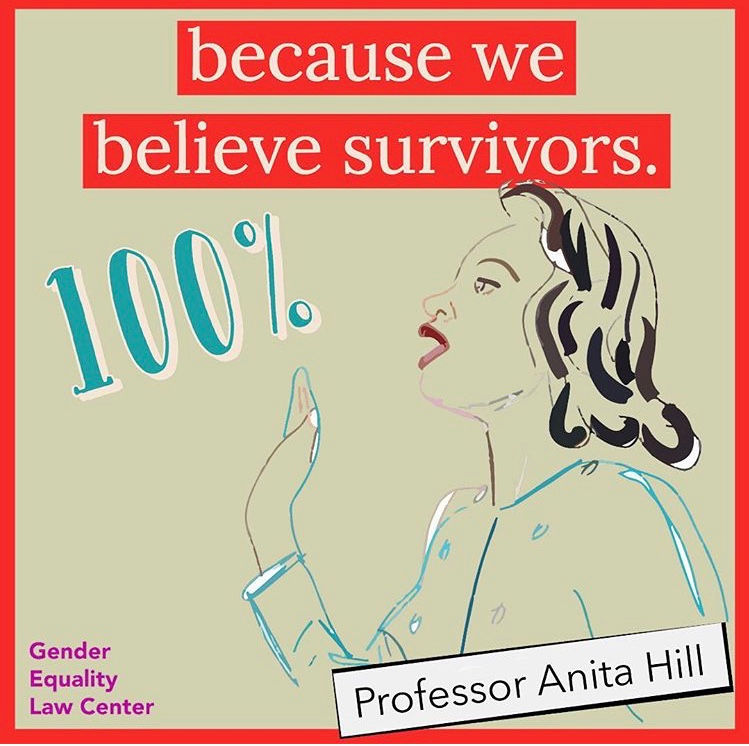New York's New Legislation Removes Significant Barriers for Victims of Sexual Harassment
- Lauren Betters
- Aug 14, 2019
- 3 min read
On Monday, Governor Cuomo signed a set of amendments to the New York State Human Rights Law (NYSHRL), providing stronger protections for women, LGBTQ individuals, and all other classes protected under the law. The Gender Equality Law Center worked with coalitions of employment lawyers, women’s rights advocates, and other organizations to support this progressive change for all New Yorkers.
Ending Severe or Pervasive
One of the most impactful amendments is the removal of the "severe or pervasive" standard. In New York, in order for employers to be held accountable for sexual harassment, the conduct needs to be "severe or pervasive." That is no longer the case. By removing this high burden - which for too long has been a barrier for those experiencing harassment on the job - New York has taken an enormous step in advancing justice for survivors and equality for all.
Increasing Employer Liability
The new law helps to chip away at the Faragher-Ellerth defense, which has enabled employers to escape liability in discrimination cases if victim of harassment failed to take advantage of the preventive or corrective measures provided by the employer. Under the new law, whether or not an employee complains about the discrimination to the employer will no longer be dispositive to the employer’s liability.

Expanding Coverage
The amendments also expand the NYSHRL to apply to all employers in the state, including those with only one employee (previously the law only covered employers with four or more employees), and all state and local governments. Similar to that of the New York City Human Rights Law, it also protects domestic workers and anyone providing services in the workplace, including independent contractors, vendors, and consultants.
Broad Construction
The new law is to be construed independently and broadly, regardless of the interpretation of similar language used in federal civil rights law. Further, exceptions will be construed narrowly in an effort to significantly deter discrimination.
Awarding Punitive Damages and Attorneys' Fees
In a significant move to provide greater protections against discrimination, the law also includes awards of punitive damages for victims of employment discrimination, which previously were only available in housing discrimination cases. Courts must also now award fees to any successful plaintiff in employment discrimination cases, where formerly courts had the discretion to award attorney’s fees only in housing discrimination and sexual harassment cases. This change will have the effect of bridging the gap in access to justice, particularly for low wage workers who often cannot afford to hire an attorney.
Prohibiting Mandatory Arbitration and Non-Disclosure Agreements
Furthermore, the legislation expands the 2018 prohibition against mandatory arbitration clauses in sexual harassment cases to any claims of discrimination under the NYSHRL. Similarly, non-disclosure agreements in settlements for any discrimination claim will only be enforced if the complainant insists on the clause. That means employees who wish to protect their privacy can do so, but employers cannot silence employees who have faced discrimination or harassment.

Extending Time to File Complaints of Sexual Harassment
Victims of sexual harassment will now have three years to file a complaint with the New York State Division of Human Rights, compared with the one-year limit for all other discrimination claims.
Expanding Anti-Sexual Harassment Policy Requirement
All New York employers must hand out a written sexual harassment policy to each employee when they are hired, and again at the yearly sexual harassment prevention training. The Division will be conducting studies every four years on the effectiveness of their anti-sexual harassment guidance and updating it accordingly.
GELC celebrates this momentous step in holding employers accountable for addressing sexual harassment and discrimination across all sectors and workplaces. “As advocates for victims of sexual harassment, these amendments offer our clients greater access to justice by making it easier to prove they were harassed in the workplace on the basis of their gender,” says Allegra Fishel, Founder and Executive Director of the Gender Equality Law Center, “It provides stronger remedies to ensure that employers do not violate the rights of working women and genderfluid employees in New York.” Legislation such as this is critical to uprooting the systemic inequities that women and LGBT/GNC people face in the workplace, particularly for people of color. Survivors will be given the necessary time to report complaints and seek the justice they deserve.


















